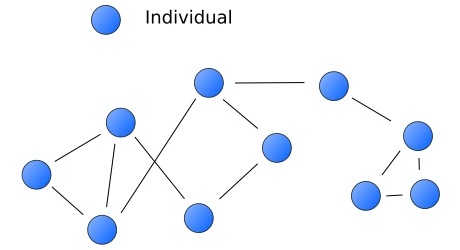
It’s not like I don’t have plenty to do already, but I this morning I felt compelled to write to some of my old PGCE tutors at Goldsmiths about all the great things I see happening through the world of Twitter. There really is so much help and information out there, but there’s a few things that stand out to me and I think current PGCE students might find incredibly useful. Here’s what I said…
Hi all,
I graduated from Goldsmiths PGCE some back in 2009 (wow, that’s gone quick!), but I like keeping in touch with you guys and I feel like there’s some great developments going on in the world of ICT at the moment that I wanted to share with you. Of course, you may already be aware of all of them, but I really think they’ll be useful things for new PGCE students to know about.
Twitter: I tweet as a teacher and it may well be the best move I’ve made in my career so far! There are a lot of innovative, generous teachers and people ‘in’ education (national literacy advisors, NAACE members etc) on Twitter who are constantly sharing ideas and news. I joined last summer and since then I cannot tell you how many ideas for things I’ve got from being on Twitter. It’s probably the best CPD around and it’s totally free. SMT at school know I tweet (I’m very open about it) and often ask me to use Twitter to find out about things or gather ideas. My deputy head has recently joined up herself, which I was quite chuffed about too! I really would urge any student to sign up. They’re more than welcome to follow me (@OhLottie) and I will introduce them to my PLN (personal learning network) as a starting point.
Personal blog: Many of my PLN share their ideas and reflections through a personal blog and I have started one too. There are many positives to this: it’s a great personal record, it helps you reflect on things you have done in the classroom and also gather ideas and thoughts for new paths you’re going down. I didn’t blog as an NQT or student, but I would also say it would be brilliant source of standards evidence too. Through starting my personal teaching blog, I also got signed up to be a contributor at Flying Start Education, which is a great opportunity.
Class blogging: Now this is the biggie. You may well have seen the wonderful class blogging that has been going on at Heathfield CPS in Bolton on BBC Breakfast News recently. I have been following many class blogs, including Heathfield’s, for some time now and three weeks ago I got the go ahead to trial class blogging in years 4 and 2 at my school. In a very short space of time, I have seen a BIG impact. The fact that children in my class are getting comments from other children and teachers from around the world on their work has motivated them beyond belief! I now have boys asking to come in at lunch time to write chapter stories on the blog! It’s been amazing and I would urge every student to seriously consider starting up a class blog when they get their own class. It’s the way forward.
TeachMeets: These are informal events organised by teacher, for teachers. They are a chance for teachers (or anyone in the education sector to be honest) to get together and make short presentations about useful things they’ve been doing that could make a tangible difference to others in the classroom. I’m going to my first one next month and presenting too. They are totally free and students are more than welcome – it would be great if some Goldsmiths students wanted to come along.
Interesting ways: These are a series of online presentations that crowd source good quality classroom teaching ideas using Google Docs. Again, made by teachers for teachers. Ideas range from Interesting Ways To Get To Know Your Class to Interesting Ways To Use a Wiki In The Classroom. They are brilliant and useful.
UnderTenMinutes.com: This site was set up by a teacher I follow on Twitter just the other day and it’s a series of 10 minute (or less) ‘how to’ videos to help teachers engage with education technology quickly. It’s early days, but I think it’s a fantastic idea and I’m not just saying that because I’ve contributed!
Anyway, I’ll be honest this is merely scratching the surface of what is ‘out there’, but I was trying to think about what would be really useful for current PGCE students to know and I think these are the top six! I hope this email is of some use and am more than willing to expand on any of the above should you need me too.
I really do mean that last point. What do you think are vital resources and information that current PGCE students need to know?

Alice Darnell
25/02/2011
I think it’s fab that you are drawing on your experience to help the next generation of teachers discover all these brilliant ways of communicating. I’m currently on a Primary PGCE at the UEA, and although Twitter was briefly mentioned at the start of the year, we haven’t really been encouraged to get involved in on-line networking. This post has encouraged me to start sharing my on-line experiences with all of my colleagues!
Claire Lotriet
26/02/2011
Thanks Alice! It’s really transformed the way I approach things and it constantly helps me solve problems. You’re in a great position to promote this kind of collaboration to your PGCE peers. It’s great that you’re getting involved already. Feel free to point people towards my post of any of the links within.
Ewen Lappin-Cook
29/08/2011
Hey Claire, many thanks for this – some really great stuff to get my teeth into. I’m about to start my GTP placement and am pleasantly drowning in information!
Claire Lotriet
01/10/2011
Really happy to have helped!